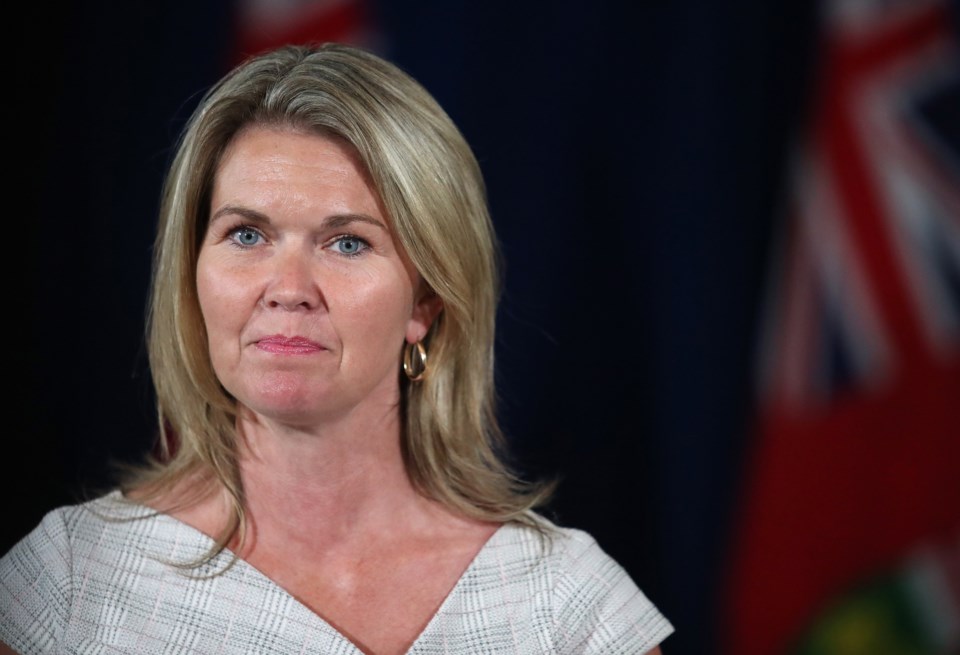Editor's Note: This story originally appeared on The Trillium, a Village Media site exclusively covering Queen's Park.
Ontario's cash-strapped post-secondary sector is getting $1.3 billion from the provincial government to help it stay afloat after years of stagnant funding, flat tuition revenues, and the recent federal crackdown on international students.
The package is well short of $2-plus billion an expert panel recommended is needed to help the sector survive.
"This is a historic investment. We have not seen this in over a decade. This is going to ensure predictability and sustainability for our institutions," Colleges and Universities Minister Jill Dunlop said during a Monday afternoon press conference.
Dunlop also introduced a bill geared towards increasing student mental health support, bolstering anti-hate policies, and providing more clarity on how schools use tuition fees.
The government will maintain its years-long tuition freeze for in-province students introduced in 2019 after a 10 per cent cut, but will let schools raise fees for non-Ontario Canadian students by five per cent per year for the next three years.
The $1.3 billion — to be doled out over three years starting next year — is split into several parts.
Just over $700 million will be distributed to all of Ontario's 24 public colleges and 23 universities, with an additional $200 million going to those with the greatest need, and an extra $10 million top-up for northern and rural schools. The province will consider factors like geography, total enrollment, and reliance on international students for extra funding.
The province is also spending nearly $170 million to help schools with capital repairs and equipment costs, plus $100 million for STEM programs, over $65 million for "research and innovation," and $23 million for additional mental health support.
Post-secondary schools are also getting $15 million for third-party audits to help "identify operational and financial efficiencies," according to the press release.
The bill Dunlop introduced on Monday allows her to direct schools to give students more information on "ancillary fees" — like textbook costs — "in a consistent manner (like) publishing costs in a course syllabus."
Ontario's post-secondary schools have been lobbying hard for more money after the province released the Blue Ribbon Panel's report on the sector's dire financial situation.
"The province’s colleges and universities have faced significant challenges to their financial sustainability in recent years," the report noted.
On a per-student basis, Ontario funds colleges at 44 per cent of the national average. Universities come in at 57 per cent of the national average.
The Tories' 2019 10 per cent tuition cut, followed by a freeze, exacerbated the situation. Inflation made it worse, the report said.
"As time goes on, this situation is ever more likely to pose a significant threat to the financial sustainability of a major part of the province’s post-secondary sector," the report added.
Those pressures led many schools to turn to international students to make up for lost revenue. The PCs allowed schools to take in more international students but as more came, it put pressure on the province's already overheated housing market. That led to the federal government capping the number of international student visas, which is expected to hit Ontario schools particularly hard.
"Many colleges and universities have passed the point where they could survive financially with only domestic students. They are financially sustainable only because of international students," the report said.
The drop in international student revenue could suck billions out of the sector's coffers. Monday's bailout won't come close to making up the gap, according to Alex Usher, president of Higher Education Strategy Associates.
"Altogether, between inflation and the loss of international students, the sector was in for a hit of over $2 billion this year. This package maybe covers 20 per cent of that. It is not a serious attempt to put Ontario's colleges and universities on solid footing," Usher wrote in a statement on X.
The Council of Canadian Universities also voiced its frustration.
"Today’s announcement, while providing short-term relief, falls far short of what the government’s own expert panel found was urgently required," said Steve Orsini, president and CEO of the Council, in a press release. "Our universities are at a breaking point."
At least 10 universities are facing deficits this year, Orsini added.
Dunlop suggested the audits could help make up some of the money but didn't answer when reporters asked if she thinks there's over $1 billion worth of efficiencies to be found.
"With a long history of finding cost savings, Ontario’s universities remain committed to enhancing efficiencies. The sector will continue to adapt and evolve to better serve students and find even more innovative ways to drive greater efficiencies," Orsini said. "However, the funding gap is just far too large to close through efficiencies alone."
Colleges Ontario CEO Marketa Evans welcomed the "initial investment" as a "welcome first step," but said "we expect further action from the province."
"The future of the high-quality programs offered to students remains at risk."
